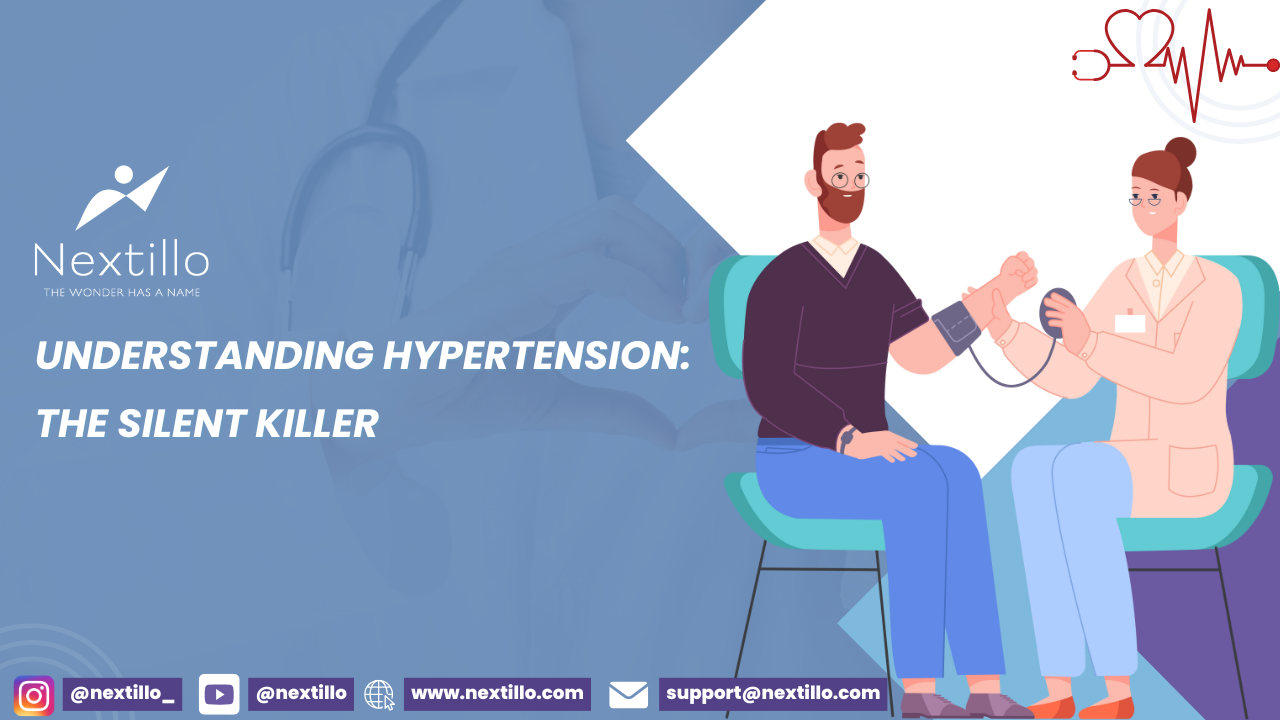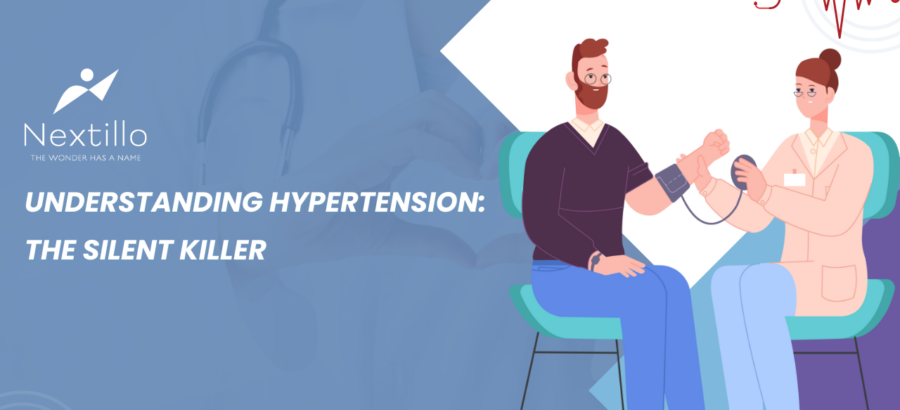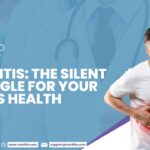Hypertension is often referred to as the “silent killer, as it can quietly damage your heart, blood vessels, kidneys, and other organs without showing any symptoms. Hypertension occurs when the pressure in the arteries remains continuously high. That is why doctors recommend having your blood pressure checked regularly.
It is measured in two numbers:
Systolic Pressure: The top number measures the pressure in your arteries when your heart beats.
Diastolic Pressure: The bottom number measures the pressure in your arteries when your heart is at rest between beats.
A normal blood pressure is around 120 to 135 systolic and 70 to 85 diastolic. Although blood pressure varies from morning to evening. So a single high reading does not mean you have hypertension. However, sustained high readings should be noted and addressed by a doctor.
There are several Causes and Risk Factors for developing Hypertension
Age: with age, the blood vessels get stiff, eventually leading to increased pressure.
Genetics: it plays a significant role, so if anyone from your family, e.g., your father, mother, or grandparents, you’re more likely to get it at some point in time at your age.
Diet: A diet high in salt and unhealthy fats and low in fruits and vegetables can lead to obesity and hypertension. High caffeine intake also contributes.
Physical Inactivity: A sedentary lifestyle/sitting job can lead to an increase in weight, and that can result in high blood pressure.
Obesity: Excess weight puts extra work on the heart and can increase the risk of developing hypertension or other serious heart diseases.
Stress: Chronic stress can lead to high blood pressure; in some people, stress can lead to unhealthy behaviors like binge eating, smoking, or drinking alcohol.
Smoking: tobacco has more than thousands of carcinogenic particles, and it damages blood vessels and raises blood pressure, making it a significant risk factor for hypertension.
Read more: Medicine Blogs for Fmge and Neet PG Preparation
Some high BP can result from an underlying health condition, which is known as secondary hypertension. It can occur as a result of various conditions, such as thyroid disorders, adrenal gland tumors, or chronic kidney disease. One of the reasons hypertension is so dangerous is that it often doesn’t produce any noticeable symptoms until significant damage has already been done. But some people may experience symptoms such as:
- Headaches
- Shortness of breath
- Dizziness or light-headedness
- Chest pain
- Vision problems
- Nosebleeds
Read more: Pathology Blogs for Fmge and Neet PG Preparation
Untreated Hypertension can lead to various manifestations, such as
Arterial Damage: Persistent high blood pressure can cause the arteries to stiffen and narrow, which can lead to peripheral artery disease and other circulatory problems. High blood pressure can affect blood flow, leading to erectile dysfunction in men and reduced sexual desire or function in women.
Heart disease and stroke: Hypertension is a leading cause of heart disease, heart attacks, and strokes. The increased pressure in the arteries can reduce or block blood flow to the heart and brain, resulting in stroke.
Kidney Damage: High blood pressure can damage the small blood vessels, also known as glomeruli, in the kidneys, leading to kidney disease and with time chronic kidney failure.
Vision Loss: Hypertension can damage the blood vessels in the eyes, leading to vision problems such as diabetic retinopathy or sometimes even blindness.
Aneurysm: The increased pressure in the arteries can weaken the vessel walls, leading to aneurysm formation. If an aneurysm bursts, it can be a life-threatening emergency.
Managing hypertension
Stick to a Healthy Diet: Focus on eating more fruits, green leafy vegetables, whole grains, and lean proteins. Reduce your intake of sodium (salt), saturated fats, and processed foods. The DASH (Dietary Approaches to Stop Hypertension) diet is recommended.
Exercise Regularly: Aim for at least 30 minutes of moderate exercise for 5 days a week. Activities like walking, swimming, and cycling can help lower blood pressure.
Maintain a Healthy Weight: Losing excess weight, especially around the waist, or trying to maintain a normal BMI can significantly lower the risk of getting high blood pressure.
Limit Alcohol and Caffeine: Drinking alcohol in moderation and cutting back on caffeine is recommended.
Quit Smoking: If you smoke, quitting is only the option before it’s too late.
Manage Stress: Practice relaxation techniques such as deep breathing, meditation, or yoga to minimize stress.
Monitor Your Blood Pressure: Regularly check your blood pressure, especially if you have risk factors for hypertension. This can help you catch high blood pressure early before it can damage other parts/systems in the body.
For those individuals who got diagnosed with hypertension. Doctors prescribe some medications to lower the blood pressure. Such as ACE inhibitors, ARB (angiotensin receptor blockers), beta-blockers, and calcium channel blockers. It is very important to follow your doctor’s advice and not to skip doses, as uncontrolled hypertension can result in serious manifestations, as mentioned earlier.
Conclusion
Hypertension is a serious, lifelong disease that can affect anyone, but it doesn’t have to be a life sentence. With regular monitoring, lifestyle changes, and medication, one can manage blood pressure and protect the overall body/health. Remember, prevention is key, and early detection can make a huge difference in avoiding the complications of hypertension. If you haven’t had your blood pressure checked in a while, make an appointment today and take control of your health. After all, a little attention now can save you from bigger problems down the road.
Download the Nextillo app on iOS and Android for in-depth knowledge and expert insights through blogs and notes for NEET PG and FMGE exam preparation. Start your journey to success today—download now!







